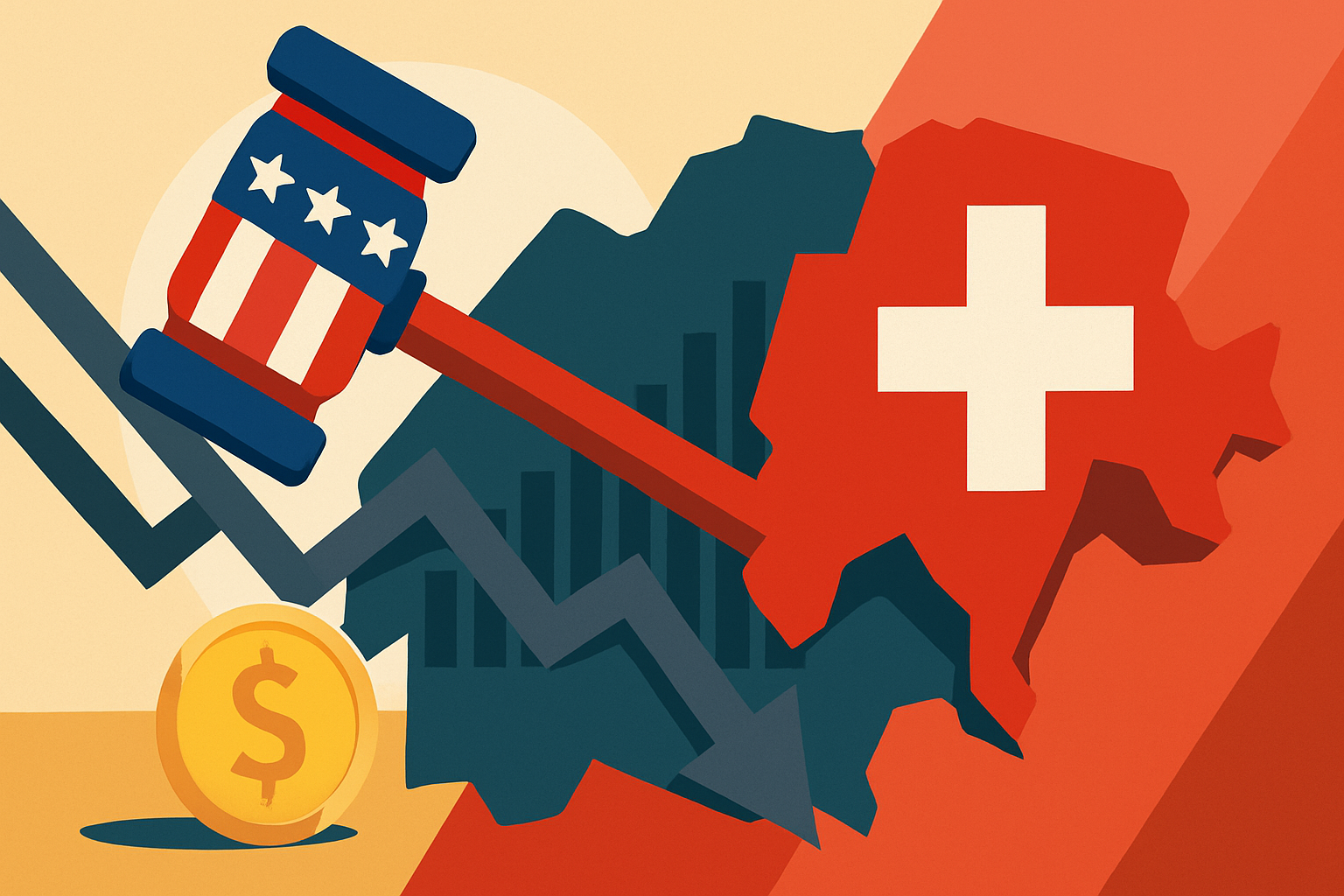Switzerland has strongly condemned a surprise decision by US President Donald Trump to impose a steep 39% tariff on Swiss imports, a move that has rattled markets, triggered political backlash in Bern, and cast a shadow over what were once optimistic trade negotiations between the two countries.
The tariff—announced just days before it is set to take effect on August 7—marks a dramatic increase from the 31% rate introduced in April, placing Switzerland among a group of countries facing the highest US trade duties, alongside Brazil, Syria, Laos, and Myanmar.
Swiss Government Reacts with Disbelief
The Swiss government described the announcement as a matter of “great regret”, particularly given its recent efforts to reach a negotiated agreement with Washington. One lawmaker said the government was in a “state of shock,” while others questioned the rationale behind the measure, adding: “It is unclear what the US wants from us.”
Speaking to the public on Swiss National Day, President Karin Keller-Sutter assured citizens that the country was prepared to weather the storm, but admitted to the media that further concessions to the US would be “very difficult,” noting Switzerland had already pledged billions in US investment.
Key Sectors in the Crosshairs
The impact of the tariff remains uncertain, as the specific list of goods affected has not yet been clarified. However, a spokesperson for the Swiss economy ministry stated that pharmaceutical products and some gold imports appeared to remain exempt — at least for now.
Switzerland exported nearly $61 billion in goods to the US last year, led by sectors such as pharmaceuticals, medical devices, watches, coffee, and gold. Gold alone accounted for $11.5 billion. Notably, 60% of Swiss pharmaceutical exports are destined for the US.
Despite the partial exemptions, major drugmakers like Novartis and Roche—through its US subsidiary Genentech—received letters from the White House this week demanding reductions in drug prices, adding further pressure to an already strained relationship.
Economic Impact and Currency Volatility
Markets reacted swiftly to the announcement. The Swiss franc initially dropped 0.6% against the dollar before rebounding by the end of the day to SFr0.806, following weaker-than-expected US job data that weakened the greenback.
Business associations were quick to respond. Swissmechanic, representing thousands of SMEs, urged the federal government to adopt a “clear and firm position” in response to what it called a damaging and unjustified escalation.
Political Fallout and Broader Implications
Swiss political parties—normally cautious in foreign policy matters—condemned the US move. The Liberal Party accused the US of “sabotaging both its excellent, decades-long relationship with Switzerland and free trade as a whole.”
The tariffs come as a surprise after recent optimism in Bern that Switzerland could become one of the first nations to strike a trade deal with the US under the current administration. Those hopes were dashed when President Keller-Sutter revealed via a post on X (formerly Twitter) that her recent conversation with Trump failed to produce an agreement on a long-negotiated memorandum of understanding.
A Broader European Comparison
Switzerland now finds itself a European outlier. While the UK and EU countries secured lower tariffs of 10% and 15% respectively, Switzerland faces 39%, despite its efforts to negotiate. Even Norway, a non-EU country, will face only 15% duties—despite not having finalized its trade terms with Washington.
Analysts believe the tariff may be linked to the 56% surge in the Swiss trade surplus with the US in 2024, compared to the previous year. According to Professor Simon Evenett of IMD Business School, the original 31% tariff announced in April was based on 2023 data and was likely recalculated in light of new figures.
Diplomatic Efforts Ongoing
Despite the setback, Swiss officials say they remain committed to resolving the issue diplomatically. The government stated that it “continues to seek a negotiated solution with the US in accordance with Swiss law and its obligations under international law.”
Meanwhile, US Secretary of State Marco Rubio attempted to strike a conciliatory tone, posting a message on Swiss National Day affirming that the US “values its strong and steady relationship with Switzerland.”
With the clock ticking toward the August 7 implementation date, both sides face increasing pressure to find common ground—or risk long-term damage to one of Europe’s most stable transatlantic partnerships.








